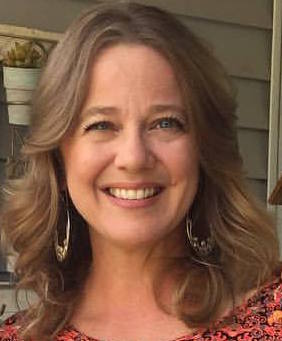Recently an editor posed a question on Facebook: Do you think about and work on voice ahead of time for your novels?
It was an interesting question for me, because when I think of voice, I think of the writer’s unique style, which, IMHO, the writer develops 15% through education, 35% through innate ability, and 50% through practice, practice, practice (in fact, I believe it takes hundreds of thousands of words to discover voice, and a lifetime to pursue its perfection) . The editor, however, was referring to the voice of the characters, and I associate those with point of view. Whatever you call it, that’s what I want to talk about today: point of view and how it gives a distinct voice to characters.
Caveat: you might get a different answer from your MFA professor, but that’s OK. My purpose in writing this is to capture my process, in case it helps someone else. I don’t have an MFA, but I do have a a small library of bestselling and award-winning books, which just means I’ve killed a lot of trees (and that some readers think I know how to do this writing thing, and the readers are who I write for). If my methodology and thinking doesn’t work for you, then there’s lots of other folks you can turn to without hurting my feelings, and that’s what you should do.
The short answer to the editor’s question is that I don’t think consciously about voice ahead of time, but I do think about point of view. A lot. For each of the novels I have written, I have thought about point of view for months—and talked about it, and for most of my novels, outlined it/synopsized it/character studied it—so that when I begin to write I already know my POV character (and others) very well, and they’ve started having conversations with other characters in the book in my head. Because I know where they are from and who their parents are and who they hung out with growing up and who they idolized as a child and what educational level they obtained and how they felt about intelligence/education/self-presentation and much more, like their favorite underwear, what smells bug them, what they watch on TV, how often they shave their legs, etc. I know what they sound like. Their accents. Their mannerisms. Their pet phrases. Their hot buttons.
Possibly because of that, the voices, especially of the POV character (or characters), come out as soon as I start writing. That doesn’t mean they’re perfect, because it may take a hundred thousand words or more before I get a few of them just right, and a revision (or five) to bring the rest of them in line. Sometimes I write things authentic to their POV (and how they sound) that are extraneous to the story, things I have heard them say, how they said it, to whom, and the context within which they said that was real as I faithfully wrote the book to match their story playing in my head. The writing of those things helped me establish them as a character, even if I later have to delete them.
I like to write in first person because I like to get very intimate with a character. I have also been told that I as a writer have a very distinct voice. I’m on my third multi-book first person protagonist. So it’s important that each of my first person protagonists sounds unique and true to themselves, even as each brings a piece of me with them.
To do that, I have to get deep down and dirty with the character. For instance, in my upcoming Emily series, I needed a way for Emily to say someone looked hungrily at someone else. I mentioned that to my husband because I was stuck, and vocalizing it to him aloud helped me change my paradigm from sitting silently and thinking about it. His answer was outside of the context of point of view: “hyena.” That made me think of “wolf,” which also felt completely outside of Emily’s POV. She grew up as a rodeo kid in the Panhandle of Texas, and she spent lots of time outside, and on the prairie. I sat and thought about her days as a child, and where, and what she’d seen there, and how it had impacted her until a picture formed in my mind that I knew was real. Ultimately, I went with this: “She’d looked at Jack a moment ago like a red-tailed hawk I’d once seen lock eyes on a rabbit seconds before snatching it into the sky, twenty feet from where I sat daydreaming in summer grass.” I guess what I am saying here is that, for me, Emily’s experiences impact POV choices which ultimately comes into my voice expressing her voice, whether it is in her head or verbalized.
Emily also says things like this:
“She was as shallow as a Texas river in August.”
“My research was as gappy as the hair on a mangy dog.”
“My moods were as up and down as the Dallas Cowboys.”
Emily sounds like this when she describes her mother:
“She beamed at me, reflecting a vision of what I would look like in twenty-five years, if genetics trumped will. Indecently long legs made even longer by stilettos. Better-than-medium-height, round blue eyes, and dewy, Mary Kay-slathered skin going crepey at the edges. A trim body thicker through the middle in a snug dress slightly less long than was proper for her age, and the best blonde that money could buy from the shelves of Wal-Mart. Trailer park meets the Southern church lady, that was my mother.”
From where I sit this makes her distinct from my earlier protagonists, Katie and Michele. Katie, the daughter of a north Texas Sunday School teacher and Dallas Police Chief, is more educated than Emily, but more fragile, and she cares much more about “things.” Michele, whose Caucasian mother annoys her and whose Mexican veterinarian father is her hero, is insecure about her looks and her uptight nature, and tries to control the world and the words around her. This impacts what each woman thinks, what she chooses to say and not say, what she blurts out in her weakest moments, her accent, her self-confidence, the life experiences she has to relate current events to, the length/complexity/syntax of her sentences, her word choices, and even her accent. I couldn’t tell you what exactly makes Katie sound like Katie or Michele sound like Michele, I just know that Emily sounds like Emily because I got to know her very well before I wrote her, and then stayed as true to her as I could.
In a nutshell, for me, it is all about preparation, and letting the characters develop over time before I attempt them, then remaining true to who they are and their own histories as their scribe. Also, it’s about writing it absolutely as fast as I can so I stay in “voice” and “POV.” I really stink it up if I put it down and come back later multiple times, unless I have reached a stuck state where I accept the inevitability of a MAJOR rewrite (which is fine if it needs it). Even then, I just have to become the character and live in her world until the story ends, for that second (or third or fourth or fifth) time.
Pamela
Pamela Fagan Hutchins, winner of the 2017 Silver Falchion award for Best Mystery (Fighting for  Anna), writes overly long e-mails, hilarious nonfiction (What Kind of Loser Indie Publishes, and How Can I Be One, Too?), and series mysteries, like those in her What Doesn’t Kill You world, which includes the bestselling Saving Grace and the 2015 and 2016 WINNERS of the USA Best Book Award for Cross Genre Fiction, Heaven to Betsy and Hell to Pay. You can snag her newest release, Bombshell, if you’ve already run the rest of the table. She teaches writing, publishing, and promotion at the SkipJack Publishing Online School (where you can take How to Sell a Ton of Books, FREE) and writes about it here on the SkipJack Publishing blog.
Anna), writes overly long e-mails, hilarious nonfiction (What Kind of Loser Indie Publishes, and How Can I Be One, Too?), and series mysteries, like those in her What Doesn’t Kill You world, which includes the bestselling Saving Grace and the 2015 and 2016 WINNERS of the USA Best Book Award for Cross Genre Fiction, Heaven to Betsy and Hell to Pay. You can snag her newest release, Bombshell, if you’ve already run the rest of the table. She teaches writing, publishing, and promotion at the SkipJack Publishing Online School (where you can take How to Sell a Ton of Books, FREE) and writes about it here on the SkipJack Publishing blog.
Pamela resides deep in the heart of Nowheresville, Texas and in the frozen north of Snowheresville, Wyoming. She has a passion for great writing and smart authorpreneurship as well as long hikes and trail rides with her hunky husband, giant horses, and pack of rescue dogs, donkeys, and goats. She also leaps medium-tall buildings in a single bound (if she gets a good running start).

Thanks for writing this, Pamela. An excellent perspective on Voice/POV.
Thanks Chris! I’ll pass it along to her.
Thanks, Chris!
I like your approach Pamela. I normally do not think that far ahead with every character. Some I do. Depends on how much needs to be exposed in any particular situation. I do a lot of detail research with possible characters and then try to write by putting myself in their shoes.
Lots of room to think here.
Clifford Neal
Thanks for commenting Clifford, and nice meeting you in Jasper.
Thinking is good, Clifford!
Very well done, thank you for this. Do you find that your characters nag you to write scenes that are too far in the future at the time? If so, how do you control that and stay in the moment as far as their relationships, the characters growing together?
I make lots of notes that I keep at the end of the MS. That way I can capture the idea for later scenes (or that may never get included), but I TRY not to give in to the shiny bright desire to write out of sequence unless I get stuck and need to purposefully skip ahead. I really believe in writing a draft straight through, but with lots of notes, whether they be my may (end of MS) or on your hand (preferably in permanent marker) or on a yellow pad.